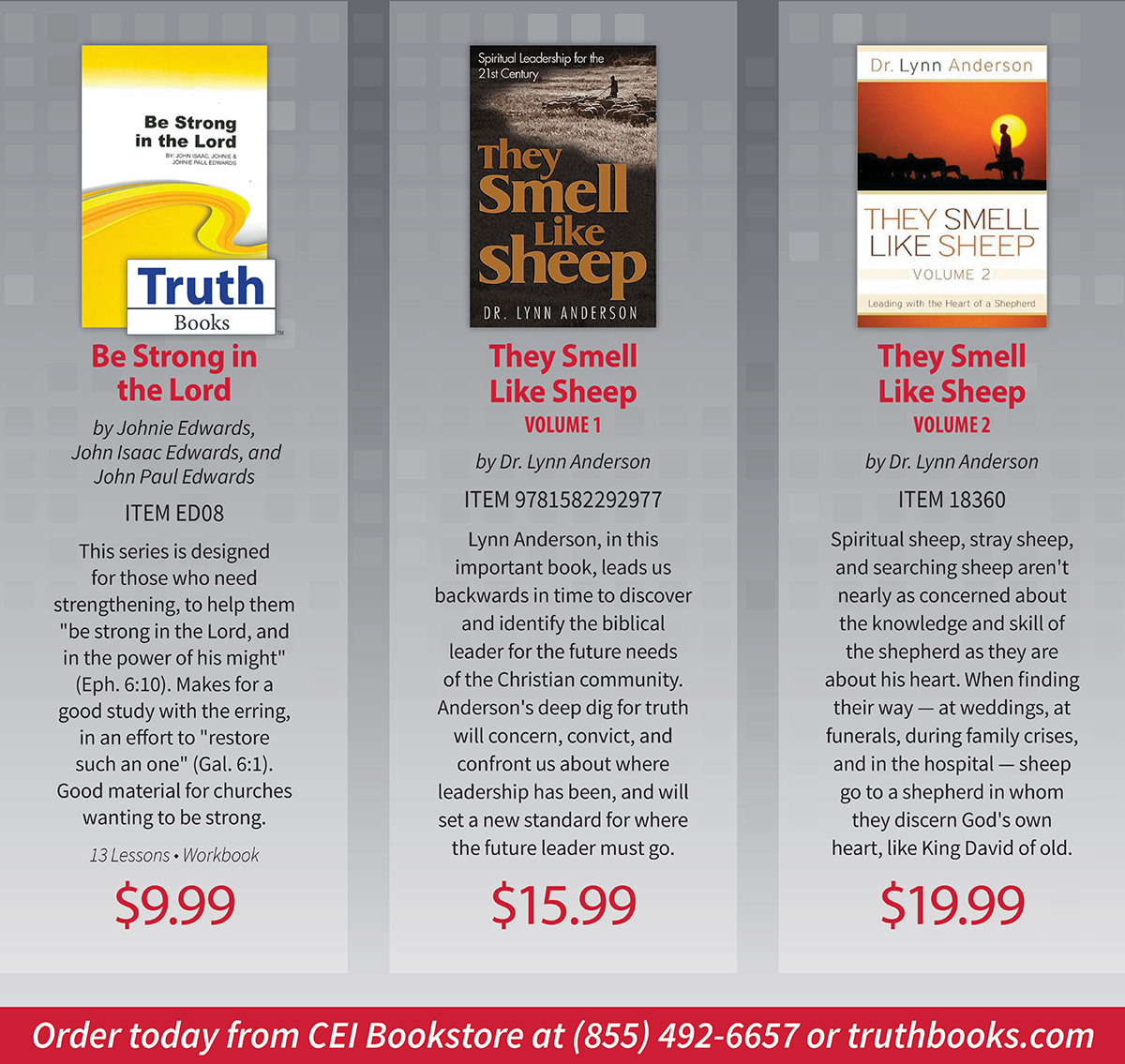

by Constant Coulibaly
Synopsis: Combining the imagery of sheep (docile followers) with conquerors (victorious warriors), brother Coulibaly reminds us of the great promise given to the faithful.
Years ago, when I was at the school of Journalism, we learned a writing technique that consists of grabbing the reader's attention when crafting an article. This practice is common to various areas in the field of mass communication (advertising, marketing, public relations, broadcasting, etc.).
Over the years that I have been a student of the Bible, I have learned that God employs similar techniques when speaking to His people. One way He does this is through the use of contrasts. Here is an example from Romans 8:36-37 where the Spirit-filled apostle Paul wrote, "For thy sake, we are killed all the day long; we are accounted as sheep for the slaughter. Nay, in all things we are more than conquerors." The expression "more than conquerors" is the translation of the Greek word hupernikao, a compound of huper, meaning "over," and nikao, meaning "to overcome." According to Vine's Dictionary, it means "to gain a surpassing victory," literally, "we are hyper-conquerors," i.e., "we are pre-eminently victorious" (Vine, 122).
Addressing the church at Rome, Paul described the saints he addressed, and also himself, as sheep that are "more than conquerors." It is hard to think of sheep as having such qualities. Sheep are rather vulnerable creatures, as Jesus explained in John 10, saying that they may be at the mercy of wolves. One reason they are offered to the slaughter for sacrifice pertains to their docile nature (Isa. 53:7). Moreover, sheep always need a shepherd to protect and guide them—even as Christians need the Lord (Ps. 23; John 10).
On the other hand, the term "conqueror" suggests the ability to prevail against adversity and survive independently. Because of their ferocity and strength to prey on other animals, it is easy to conceive of lions as conquerors. It is not so with sheep. Accordingly, "we are sheep" is a statement that is the opposite of "we [sheep] are conquerors." Yet, this is only a paradox. In other words, it is a combination of two statements that seem contradictory but are, in fact, true.
The paradox of "sheep that are conquerors" is designed to help Christians realize that, while they are weak in the face of suffering, they can overcome and be victorious. Like all human beings, Christians are subject to suffering. The fact that one is a Christian should not lead him to conclude that God would build a hedge around him and protect him. Even the effort one makes to improve his life can become distressful and burdensome to his mind. Job said, "Man that is born of a woman is of few days, and full of trouble... his flesh upon him shall have pain, and his soul within him shall mourn." (Job 14:1, 22). Suffering is woven into the fabric of life.
Additionally, Christians suffer because of their obedience to Christ and of their effort to live a godly life. Jesus said, "Blessed are they which are persecuted for righteousness' sake... Blessed are ye, when men shall revile you, and persecute you, and shall say all manner of evil against you falsely, for my sake" (Matt. 5:10-11; cf. 2 Tim. 3:12). In the case of the saints at Rome, they were affected by Emperor Claudius' decision to expel the Jews from the Imperial city in AD 57. Aquila and his wife, Priscilla, were among those who were driven out (Acts 18:2). In AD 64, Nero would institute a wave of persecution against the saints in Rome.
Although they find themselves in the grip of evil forces, whether natural disasters or man-made afflictions, Paul encourages Christians to believe that they will be victorious in the end. Implied in his words of comfort is the idea that Christians must be valiant soldiers of Christ. God wants Christians to show courage in bearing trials, but He also requires that we be militant in defending the truth against error. Paul assures us that God is on the side of the disciples of Christ. Earlier in verses 28-30, the apostle identified Christians as people who love God, have responded to His call and, as a result, stand justified before Him. For these reasons, He will not abandon them in their continual struggles to worship and serve Him.
Paul offers a list of tribulations that cannot "separate us from the love of God, which is in Christ Jesus our Lord" (vv. 38-39). This list is not exhaustive. God's goodness is the Christian's assurance of victory over evil.
God's love is demonstrated through the death of Christ. Paul said, "God commendeth his love toward us, in that while we were yet sinners, Christ died for us" (Rom. 5:8). Because God saved us from sin, there is no difficult situation from which He will not rescue us:
What shall we then say to these things? If God be for us, who can be against us? He that spared not his own Son, but delivered him up for us all, how shall he not with him also freely give us all things? (Rom. 8:31-32).
Vine, W. E., Merrill F. Unger, and William White Jr., Vine's Complete Expository Dictionary of Old and New Testament Words. Nashville, TN: Thomas Nelson Publishers, 1996.
Author Bio: Constant and Philice Coulibaly have labored with the Brighton Church of Christ for fourteen years. The church is located at 11 Oxford Street, Brighton, Sussex, BN1 4LA, UK. Telephone: 0798-458-9904. The church website is churchofchristinbrighton.com. He can be reached at constantcoulibaly@hotmail.com or info@churchofchristinbrighton.com.

